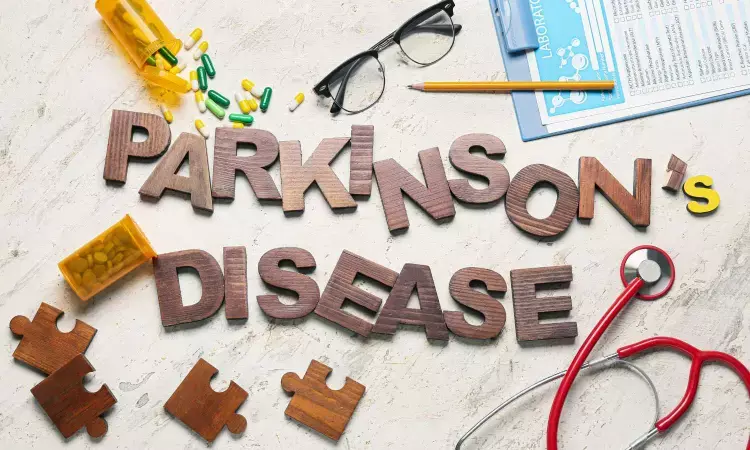- Home
- Medical news & Guidelines
- Anesthesiology
- Cardiology and CTVS
- Critical Care
- Dentistry
- Dermatology
- Diabetes and Endocrinology
- ENT
- Gastroenterology
- Medicine
- Nephrology
- Neurology
- Obstretics-Gynaecology
- Oncology
- Ophthalmology
- Orthopaedics
- Pediatrics-Neonatology
- Psychiatry
- Pulmonology
- Radiology
- Surgery
- Urology
- Laboratory Medicine
- Diet
- Nursing
- Paramedical
- Physiotherapy
- Health news
- Fact Check
- Bone Health Fact Check
- Brain Health Fact Check
- Cancer Related Fact Check
- Child Care Fact Check
- Dental and oral health fact check
- Diabetes and metabolic health fact check
- Diet and Nutrition Fact Check
- Eye and ENT Care Fact Check
- Fitness fact check
- Gut health fact check
- Heart health fact check
- Kidney health fact check
- Medical education fact check
- Men's health fact check
- Respiratory fact check
- Skin and hair care fact check
- Vaccine and Immunization fact check
- Women's health fact check
- AYUSH
- State News
- Andaman and Nicobar Islands
- Andhra Pradesh
- Arunachal Pradesh
- Assam
- Bihar
- Chandigarh
- Chattisgarh
- Dadra and Nagar Haveli
- Daman and Diu
- Delhi
- Goa
- Gujarat
- Haryana
- Himachal Pradesh
- Jammu & Kashmir
- Jharkhand
- Karnataka
- Kerala
- Ladakh
- Lakshadweep
- Madhya Pradesh
- Maharashtra
- Manipur
- Meghalaya
- Mizoram
- Nagaland
- Odisha
- Puducherry
- Punjab
- Rajasthan
- Sikkim
- Tamil Nadu
- Telangana
- Tripura
- Uttar Pradesh
- Uttrakhand
- West Bengal
- Medical Education
- Industry
Smartwatches and smartphones critical for developing new treatments for Parkinson's disease

USA: A recent study has shown the potential of commercially available smartphones and watches, like the Apple Watch, to detect and objectively measure the severity and potential progression of important symptoms of Parkinson’s disease.
The study revealed that readily accessible and ubiquitous technology can capture key features of early, untreated Parkinson’s disease. These technologies could provide researchers with more objective and continuous ways to measure the disease and bring new treatments to market faster, particularly for patients in the early stages of the disease.
The study, published in the journal npj Parkinson's Disease, was conducted by University of Rochester Medical Center (URMC) neurologists Jamie Adams.
While Parkinson’s is the world’s fastest-growing brain disease, most drugs used to treat it were developed in the last century. The complexity of the disease and the limitation of current measures have been barriers to new therapies. Onset and severity of symptoms such as stiffness in the arms and legs, movement and walking difficulty, and tremors-and progression of the disease can vary significantly from patient to patient. Furthermore, the tools traditionally used to track the disease are subjective and episodic, e.g. only collected during visits to the clinic, limiting insight into how Parkinson’s disease affects people’s daily lives.
Researchers with the URMC Center for Health + Technology (CHeT) have been pioneers in harnessing digital health technologies such as telemedicine, wearables, remote monitoring, and mobile apps to improve access to care and conduct decentralized clinical trials. In 2015, URMC neurologist Ray Dorsey, MD, and the CHeT team collaborated with Sage Bionetworks to launch the first smartphone research application to monitor Parkinson’s disease in real-time. During their semi-annual product launch event, Apple featured the app called mPower, and 15,000 individuals participated in research using the application. Studies have shown that mPower and another Android app can accurately track the severity of the symptoms of Parkinson’s disease. Dorsey is the senior author of the new smartwatch study.
Since the launch of mPower, the proliferation of smartwatches and technological improvements, particularly in gyroscopes and accelerometers that can more precisely measure movement, has heightened the research potential of these devices.
In the new WATCH-PD study, researchers at multiple sites across the U.S. recruited 82 individuals with early, untreated Parkinson’s and 50 age-matched controls and followed them for 12 months. The study volunteers wore research-grade sensors, an Apple Watch, and an iPhone while performing standardized assessments in the clinic. At home, participants wore the smartwatch seven days after each clinic visit and completed motor, speech, and cognitive tasks on the smartphone every other week. The smartphone app tracked finger-taping speed, performance on cognitive tasks, and speech, while the smartwatch measured arm movement, duration of tremors, and gait features.
The researchers detected motor and non-motor features that differed between individuals with early Parkinson’s and age-matched controls. The team is performing longitudinal analysis and conducting a study that will follow participants for a longer period to determine which digital measures are sensitive enough to help researchers evaluate whether an experimental therapy is making a meaningful impact on the progression of the disease.
“These findings reinforce what other studies have shown-digital devices can differentiate between people with and without early Parkinson’s and are more sensitive than traditional rating scales for some measures of Parkinson’s disease,” said Adams. For example, the researchers note that the smartphone app detected abnormalities in speech rated “normal” by investigators. “Better measures will lead to more efficient, patient-centric, and timely evaluation of therapies.”
Reference:
Adams, J.L., Kangarloo, T., Tracey, B. et al. Using a smartwatch and smartphone to assess early Parkinson’s disease in the WATCH-PD study. npj Parkinsons Dis. 9, 64 (2023). https://doi.org/10.1038/s41531-023-00497-x.
Dr Kamal Kant Kohli-MBBS, DTCD- a chest specialist with more than 30 years of practice and a flair for writing clinical articles, Dr Kamal Kant Kohli joined Medical Dialogues as a Chief Editor of Medical News. Besides writing articles, as an editor, he proofreads and verifies all the medical content published on Medical Dialogues including those coming from journals, studies,medical conferences,guidelines etc. Email: drkohli@medicaldialogues.in. Contact no. 011-43720751


